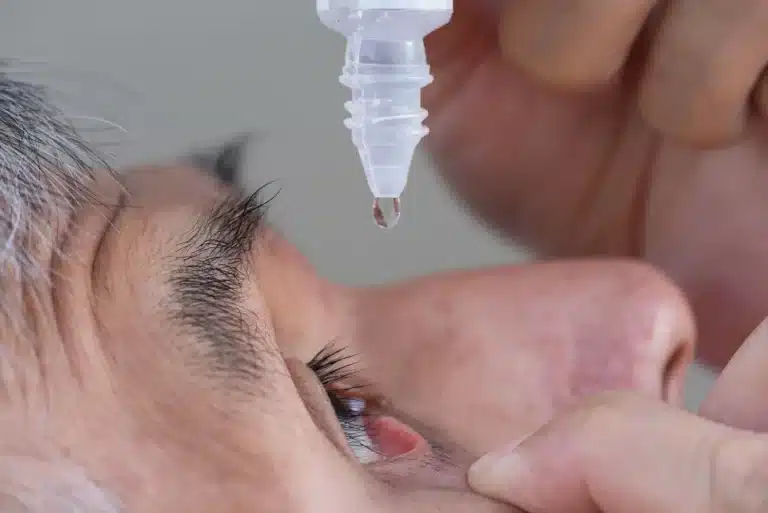January is National Glaucoma Awareness Month, a time to raise awareness about this serious eye condition that affects millions of Americans, particularly seniors. Glaucoma is often called the “silent thief of sight” because it typically has no symptoms until significant vision loss has occurred. Early detection and proper treatment are key to preventing further vision deterioration, making regular eye exams and monitoring essential for those at risk.
What is Glaucoma?
Glaucoma is a group of eye conditions that damage the optic nerve, often due to abnormally high pressure in the eye. This damage can lead to irreversible vision loss if not treated early. While anyone can develop glaucoma, the risk increases with age, making it especially important for seniors to get regular eye check-ups.
There are two main types of glaucoma:
- Open-angle glaucoma: The most common form, where the eye’s drainage system becomes inefficient over time.
- Angle-closure glaucoma: Less common, but can occur suddenly and is considered a medical emergency.
With early detection, glaucoma can be managed with medication, laser treatment, or surgery, helping to slow down vision loss and preserve the remaining sight.
How In-Home Care Helps Seniors with Low Vision
For seniors living with low vision due to glaucoma or other eye conditions, daily tasks can become increasingly difficult. This is where in-home care can make a significant difference. At Abington Caregivers, we provide in-home care that focuses on the unique needs of seniors with low vision, ensuring they maintain independence while receiving the assistance they need.
Here’s how in-home care can support seniors with glaucoma or other low-vision challenges:
- In-Home Safety: A caregiver can help create a safe environment by removing potential hazards like clutter or loose rugs that could lead to falls. Good lighting is essential for seniors with low vision, and caregivers can ensure that homes are well-lit and organized to reduce the risk of accidents.
- Medication Reminders: Managing glaucoma often involves daily eye drops and medications to control eye pressure. Caregivers can provide medication reminders, ensuring that seniors take their treatments on time and as prescribed, which is essential for preventing further vision loss.
- Assistance with Daily Tasks: From preparing meals to helping with hygiene, caregivers provide hands-on support to seniors with low vision, allowing them to maintain their independence while getting the help they need.
Helping Seniors Keep Their Eye Appointments
Regular eye exams are vital for those with glaucoma, as timely interventions can prevent further damage to vision. However, seniors may struggle to keep up with appointments due to mobility issues or memory lapses. Home care assistance can help in several ways:
- Appointment Scheduling: Caregivers can remind seniors of upcoming appointments and assist with making arrangements.
- Transportation Assistance: For seniors who no longer drive, caregivers can provide transportation to and from eye doctor visits, ensuring they don’t miss important check-ups.
- Post-Appointment Care: After eye treatments or procedures, caregivers can help with recovery, providing comfort and ensuring any aftercare instructions are followed correctly.
Supporting Independence and Well-Being
Living with low vision can be challenging, but with the right support, seniors can continue to live full and independent lives.
At Abington Caregivers, our in-home care services focus on providing compassionate, tailored assistance that helps seniors stay active and engaged while managing their health. Whether it’s assisting with daily tasks, providing medication reminders, or ensuring a safe home environment, our caregivers are here to support seniors every step of the way.
If you or a loved one is living with glaucoma or low vision, reach out to Abington Caregivers for more information on how our home care assistance can help improve safety, maintain health, and enhance quality of life.
Abington Caregivers offers compassionate in-home care, including companion care, personal care, 24-hour and hourly home care, and specialized Alzheimer’s and Parkinson’s care. We also assist with transitioning from hospital to home. Serving Abington, Andorra, Berwyn, Blue Bell, Cheltenham, Chestnut Hill, Dresher, Elkins Park, East Norriton, Flour Town, Gladwyne, Glenside, Hatboro, Haverford, Horsham, Huntington Valley, Jenkintown, Lafayette Hill, Lansdale, Meadowbrook, Oreland, Philadelphia, Richboro, Roxborough, Villanova, Wayne, West Oakland, Willow Grove, Wynnewood, and surrounding areas across Montgomery, Philadelphia, and Delaware counties.
Call us today for a free, no-obligation assessment at (215) 600-3434.
For us, quality elder care and home care is all about bringing healing to families and freedom to our clients, in the comfort of their homes. We understand that the warmth of home extends beyond the walls. It’s in the embrace of a caregiver, the assurance of attentive care and the unwavering support that defines family.
Home is the best Medicine – it is a nurturing and healing space. We live by this mantra and we work to tailor care plans that are unique to each individual. Our goal is to ensure every family we serve thrives under attentive and specialized care.
Caregiving is not just our specialty – it’s our Calling.
- Caring for the Caregiver: Managing Stress During Stress Awareness Month - April 17, 2025
- Shining a Light on Parkinson’s: Support and Awareness for Families - April 1, 2025
- Eat Well, Live Well: Nutrition Tips for Healthy Aging - March 18, 2025




